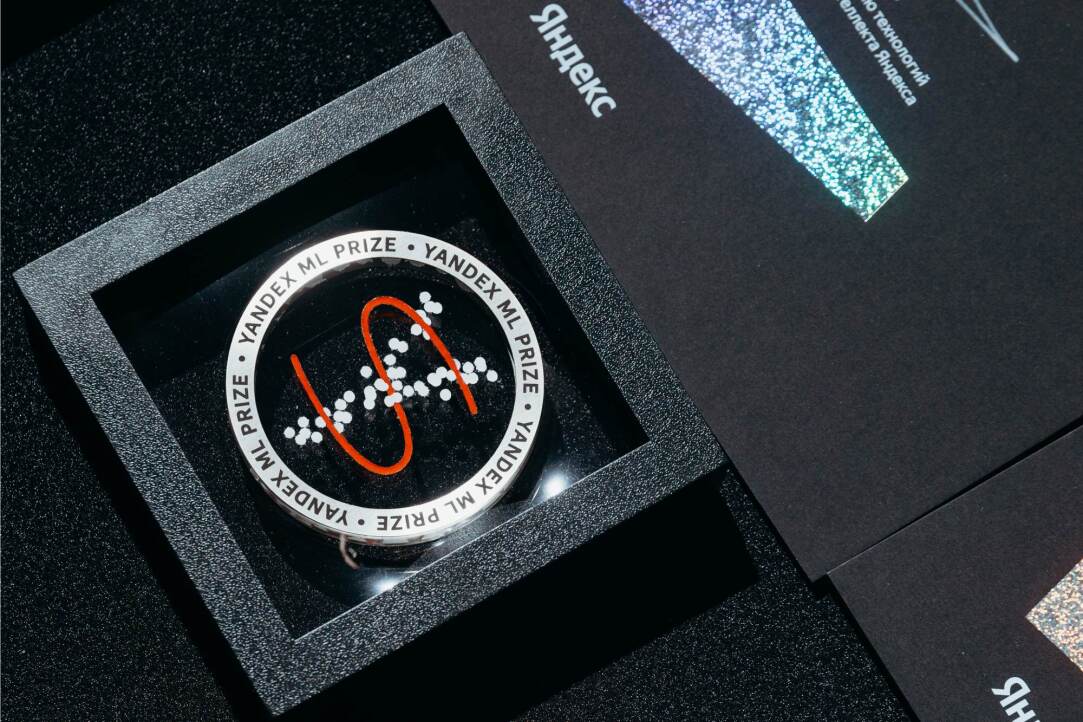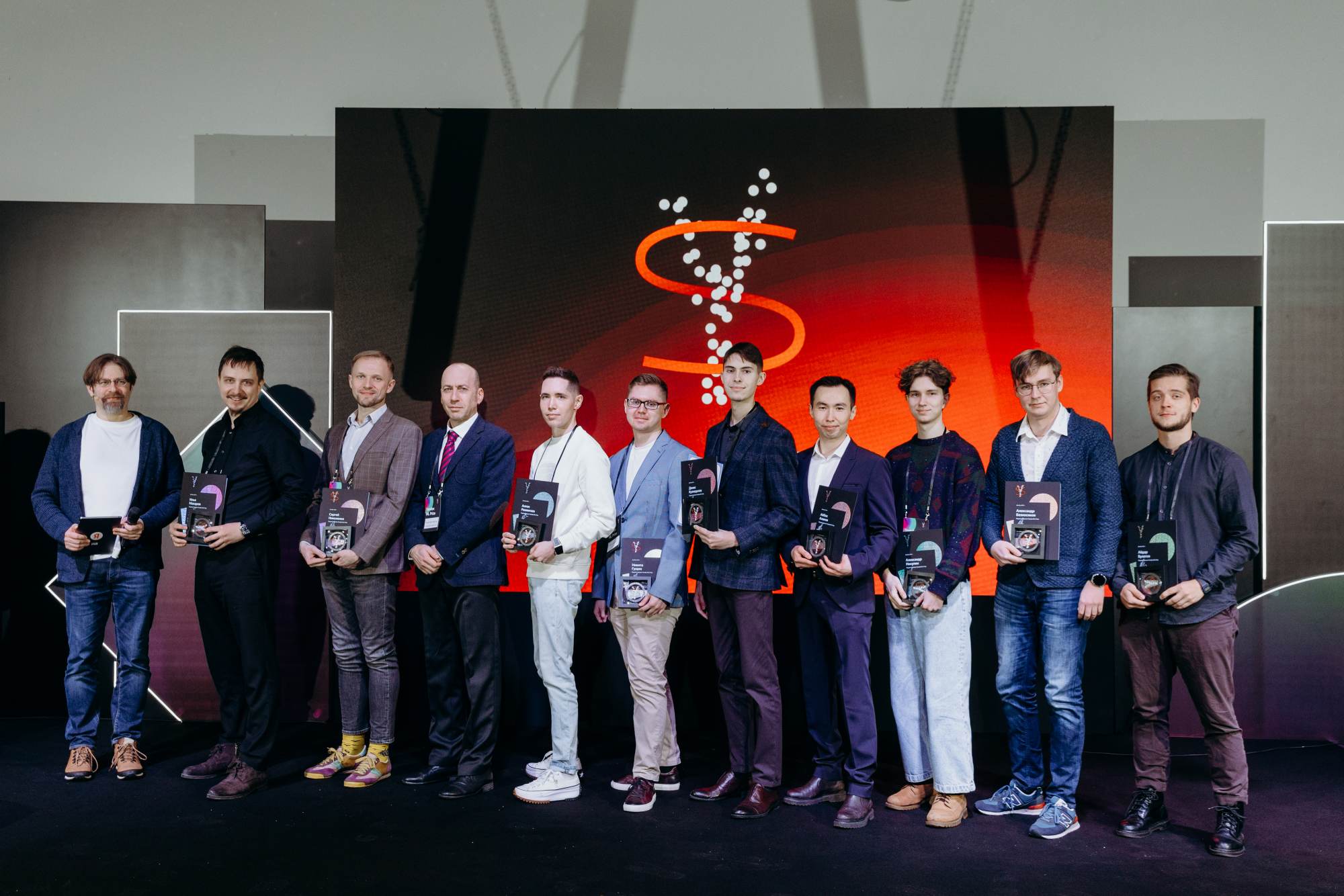Two HSE Researchers Receive Yandex ML Prize

Two researchers from the HSE Faculty of Computer Science—Aibek Alanov, Junior Research Fellow at the Centre of Deep Learning and Bayesian Methods, Research Fellow at AIRI; and Pavel Braslavski, Associate Professor, Senior Research Fellow at the Laboratory for Models and Methods of Computational Pragmatics—are among the winners of the 2023 Yandex ML Prize (formerly the Ilya Segalovich Award).
The award, established by Yandex in 2019, is aimed at supporting young researchers and the scientific community in the field of IT. Scientists who have presented the most promising and significant works in the field of speech recognition and synthesis, computer vision, information retrieval, natural language processing and generative models can apply for the award. This year, more than 200 applications from researchers from 11 countries were submitted. The award committee selected 11 laureates in 6 categories.
The laureates received prizes ranging from 500,000 to 1 million roubles depending on the category. In addition to the cash prize, Yandex provided the laureates with access to Yandex 360 services and issued a grant to use the Yandex Cloud platform, which can help researchers perform large calculations and process experimental data. This year, the size of the grant for cloud computing has been increased to 500,000 roubles.

The competition is open to bachelor’s, master’s and doctoral students studying at universities or research institutes in Russia, Azerbaijan, Armenia, Belarus, Kazakhstan, Kyrgyzstan, Moldova, Serbia, Tajikistan, Turkmenistan, and Uzbekistan. Researchers, academic supervisors and teachers who contribute to the development of machine learning can also participate in the contest.
At the HSE AI Research Centre, Aibek Alanov is working on the development and verification of conditional generation models to improve sound and image quality (the project is implemented with the support of MTS AI). He explores ways to adapt various modifications of diffusion probabilistic models to data generation tasks of various natures and internal structures.
For two years in a row, articles co-authored by Aibek were accepted at NeurIPS, the largest international conference on neural networks and artificial intelligence. Aibek co-authored the articles ‘Star-Shaped Denoising Diffusion Probabilistic Models’ in 2023 and ‘HyperDomainNet: Universal Domain Adaptation for Generative Adversarial Networks’ in 2022.

‘During my undergraduate and doctoral studies at the Faculty of Computer Science, I received the Ilya Segalovich scholarship twice, so I found out about the Yandex ML Prize immediately. I was very pleased to be so highly appreciated, and it gave me the motivation to work even harder. I felt that my work was important and valuable, and it gave me more confidence in myself and in my work.
The Yandex ML Prize is designed to support scientists engaged in fundamental research in the field of artificial intelligence. I think many people understand that without it, significant progress in the development of new technologies in this area is impossible. Therefore, it is especially important for the industry to support as many scientists as possible.
I think that in the future, artificial intelligence technologies will be an even larger part of our daily lives and radically change our way of life for the better. I don’t want just to consume these technologies, but to create and develop them. In my academic career, my main goal is to create my own research group that would conduct research at the international level and show results that are interesting and valuable for the entire field.’
Together with Ilya Segalovich, one of the creators of Yandex, Pavel Braslavski organised the first series of machine learning competitions in Russia. Pavel is also the organiser of the Russian Summer School in Information Retrieval (RuSSIR).
Pavel's article ‘You Told Me That Joke Twice: A Systematic Investigation of Transferability and Robustness of Humor Detection Models’ was accepted to the main programme of the EMNLP 2023 international conference on natural language processing. In this paper, the authors explore what data is needed to train humour recognition models, and what limitations these models have.

‘I want to thank Yandex for the award! A lot of things in my life started with working for this company, which I joined 18 years ago. Therefore, receiving the Yandex ML Prize seems to bring me back to the people I love. I also want to thank my family. Thanks for supporting science!’
Read about the Yandex Award 2022 here.
See also:
From Neural Networks to Stock Markets: Advancing Computer Science Research at HSE University in Nizhny Novgorod
The International Laboratory of Algorithms and Technologies for Network Analysis (LATNA), established in 2011 at HSE University in Nizhny Novgorod, conducts a wide range of fundamental and applied research, including joint projects with large companies: Sberbank, Yandex, and other leaders of the IT industry. The methods developed by the university's researchers not only enrich science, but also make it possible to improve the work of transport companies and conduct medical and genetic research more successfully. HSE News Service discussed work of the laboratory with its head, Professor Valery Kalyagin.
HSE Team Takes First Place in RuCode Algorithmic Programming Championship
On October 20, 2024, the final round of the RuCode Algorithmic Programming Championship took place, setting a new record in the Russian Book of Records as the ‘Largest Competitive Programming Event.’ The event, held simultaneously across 24 locations, hosted 1,450 participants divided into 500 teams. The overall winner of the senior team division was the M.O.S.C.O.W. team from the HSE Faculty of Computer Science (FCS).
HSE Teachers Awarded Yandex ML Prize
The awards ceremony for the international Yandex ML Prize was held in Moscow. This year, all three winners in the ‘ML Educators’ category were HSE faculty members—Evgeny Sokolov, Associate Professor and Head of the Big Data and Information Retrieval School, Anton Konushin, Associate Professor at the Faculty of Computer Science, and Aleksei Shpilman, Associate Professor at the Department of Informatics at HSE’s St Petersburg School of Physics, Mathematics, and Computer Science.
Researchers at HSE in St Petersburg Develop Superior Machine Learning Model for Determining Text Topics
Topic models are machine learning algorithms designed to analyse large text collections based on their topics. Scientists at HSE Campus in St Petersburg compared five topic models to determine which ones performed better. Two models, including GLDAW developed by the Laboratory for Social and Cognitive Informatics at HSE Campus in St Petersburg, made the lowest number of errors. The paper has been published in PeerJ Computer Science.
HSE and Yandex to Expand Collaboration in Training AI Specialists
Over the next ten years, the partnership between Yandex and the HSE Faculty of Computer Science (FCS) will broaden across three key areas: launching new educational programmes, advancing AI research, and exploring the application of generative neural networks in the educational process. Established by HSE University and Yandex a decade ago, the Faculty of Computer Science has since emerged as a frontrunner in training developers and experts in AI and machine learning, with a total of 3,385 graduates from the faculty over this period.
Days of Computer Science Held at HSE University
Every spring, HSE University’s Faculty of Computer Science, which this year turns nine years old, traditionally opens its doors and invites everyone to a festival. This time, more than 20 events with over 2,000 registered participants were held between April 8th and 16th as part of the Days of Computer Science.
Light Breezes Improve Moods of Social Media Users
Sergey Smetanin, Research Fellow of the HSE Graduate School of Business, conducted a large-scale analysis to examine the impact of weather conditions on the sentiments expressed by users of the Odnoklassniki (OK) social network. The findings have been published in PeerJ Computer Science. This is the first study of its kind in Russia.
Three HSE Researchers Receive Ilya Segalovich Award
Three researchers of the HSE Faculty of Computer Science are among the winners of the 2022 Ilya Segalovich Award: Research Professor Dmitry Vetrov, Associate Professor Alexey Naumov and doctoral student Sergey Samsonov. The award, established by Yandex in 2019, is aimed at supporting young researchers and the scientific community in the field of IT in Russia, Belarus and Kazakhstan.
‘Computer Methods of Cognitome Analysis’ Conference to Explore New Perspectives on Memory and Consciousness
On September 1–3, the HSE International Laboratory of Algebraic Topology and Its Applications will host the international conference 'Computer Methods of Cognitome Analysis'. Konstantin Sorokin, Research Assistant at the Laboratory and organiser of the conference, spoke about the main topics of the event and his hope that it will inspire pure mathematicians, physicists and computer scientists to apply their knowledge and intuition to the problems of brain-function mechanisms.
HSE University Maintains Positions in Two THE Subject Rankings
HSE has been included in two Times Higher Education (THE) subject rankings. It is ranked in the Top 500 for Computer Science and in 801-1000 group for Engineering.


